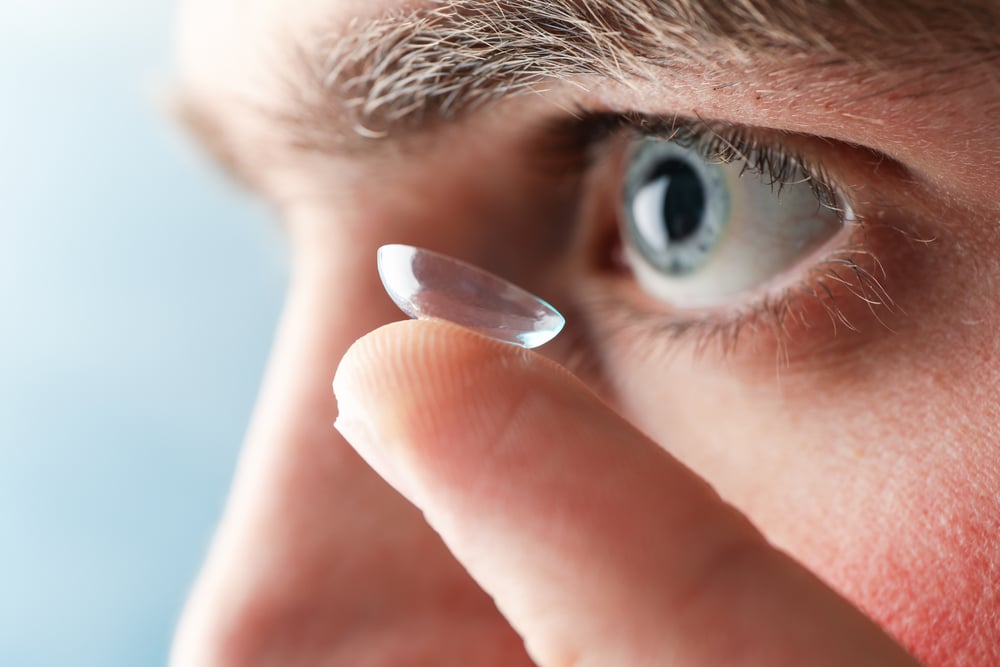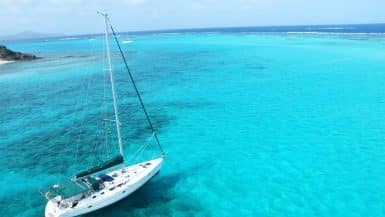When packing for a trip, contact lens wearers are often faced with the question of whether they should take their contact lenses or their glasses with them. After all, the smooth replacement requires a lot of effort and a certain standard of hygiene, which is not always so easy to guarantee on vacation. Both options have their own advantages and disadvantages, which should be weighed up depending on the destination, activities and personal preferences. We have looked at some of them and summarized them to help you decide.
Travelling with contact lenses
If you already use them, you already know what’s coming, because the advantages of contact lenses are obvious. They offer a natural and unrestricted view, as they rest directly on the surface of the eye and can be used in everyday life without hindrance. They also allow activities such as swimming, sports or outdoor adventures without restricting movement, thus guaranteeing planning with slightly fewer obstacles. Surfing or diving can also be done with contact lenses – particularly soft lenses work well here. However, they should be disposed of immediately after the water visit if water and the bacteria in it have cheated under the lens. If you’re on a winter holiday, you also benefit from not having to deal with fogged up lenses – and can wear snow protection goggles without any inconvenience.
However, as mentioned at the beginning, contact lenses require thorough hygiene. For example, if you don’t always have direct access to running water to guarantee clean hands, you risk infections in the worst case. Long flights, air-conditioned or heated environments, or dusty places can also cause dryness and irritation – especially if the lenses are worn for long periods of time. Something you certainly don’t want to have to struggle with on vacation. In addition to the more than enough spare lenses, contact lens fluid and storage containers in your luggage, there should also be drops of moisture.
The glasses with you on holiday
With their simple putting on and taking off, glasses require much less elaborate care and hygiene than contact lenses. As a natural barrier between the eyes and the environment, they also protect – which can be particularly beneficial in dry or dusty air and reduce eye irritation. And they are versatile! In changing light conditions, when reading or doing activities, they can be easily removed. In extremely sunny environments, prescription sunglasses also provide reliable vision from intense sunlight and protect against sunburn and possible photokeratitis (which is basically the equivalent of sunburn of the eyes!). In quite windy environments, on the other hand, they protect against the penetration of tiny particles such as sand or dust.
Compared to lenses, however, they offer a much more limited view – which can be annoying on vacation, especially with beautiful panoramic views. In addition, some activities are restricted. Especially during sports or outdoor activities, glasses can quickly become uncomfortable or slip. And: they are much more susceptible to loss or damage, which can quickly become problematic when traveling if replacements are not readily available.
Which visual aid is better when?
As is so often the case, the decision between contact lenses and glasses when traveling depends on individual needs. For those who are looking for clear vision without restrictions and can comply with the necessary hygiene measures, contact lenses are still worthwhile. However, glasses come up trumps with much less maintenance and can be the smart choice, especially for holidays in the countryside. They offer more protection and comfort in some situations, but the opposite in others due to slipping or fogging. It is always advisable to consider both options and choose based on the itinerary, desired activities and preferences. Either way, we recommend having both spare lenses and glasses as a backup in your luggage to be equipped for all eventualities. No matter which option is chosen, suddenly finding yourself without a clear view on vacation is catastrophic in both cases.




